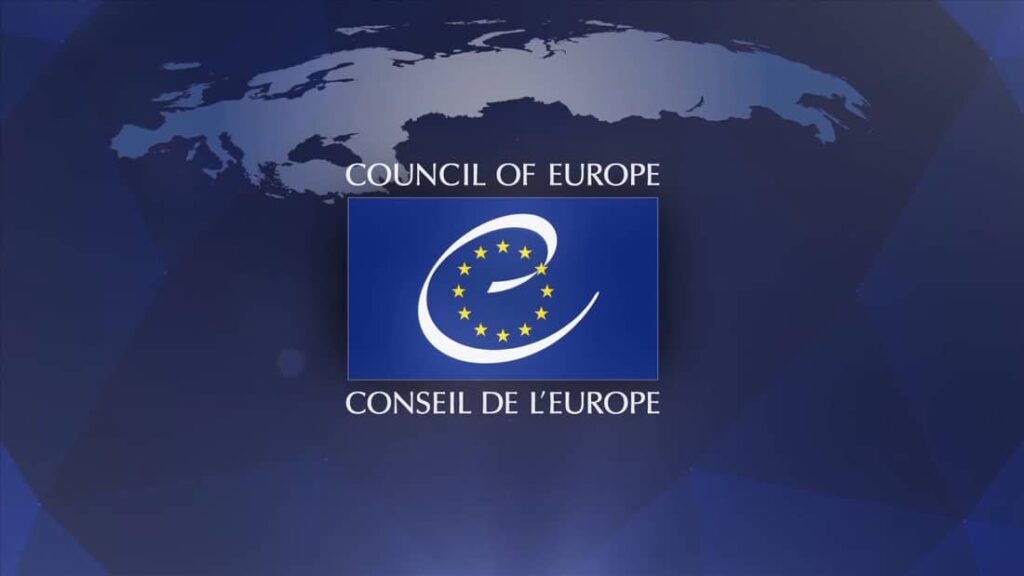Reflecting a growing awareness of the harms involved in coercive mental health treatment, the Council of Europe has released a report of “good practices” for member states designed to promote voluntary measures in the provision of mental health treatment. The report draws on research and advocacy from NGOs, human rights institutions, and other advocates.
“There is growing evidence for the success of measures to reduce and prevent coercion in mental health settings and crisis support services. This evidence suggests that many assumptions about the appropriateness and ‘necessity’ of coercion held by many governments, professionals, and communities need to be re-visited.”
 Coercive treatments such as involuntary hospitalization have long been negatively characterized as a pathway to care for persons experiencing mental health challenges, especially youth. Involuntary hospitalization during adolescence may increase the risk of suicide and reinforce the risk of acquiring and developing complications related to COVID-19. Such treatments may also “trigger or reinforce stigma apprehension, diminish trust in providers, detrimentally impact self-worth and other aspects of emerging identity, and disrupt peer and school relationships.”
Coercive treatments such as involuntary hospitalization have long been negatively characterized as a pathway to care for persons experiencing mental health challenges, especially youth. Involuntary hospitalization during adolescence may increase the risk of suicide and reinforce the risk of acquiring and developing complications related to COVID-19. Such treatments may also “trigger or reinforce stigma apprehension, diminish trust in providers, detrimentally impact self-worth and other aspects of emerging identity, and disrupt peer and school relationships.”
In the U.S., Black and minority youth are more likely to be subject to forced treatment or hospitalization. In addition, recent research has found a significant combination of medical and legal coercive treatment of Black people, suggesting an interaction of psychiatry and law that is especially problematic for Black people experiencing psychosis.
The Council Report identifies four areas of good practice for promoting voluntary treatment: hospital-based initiatives, community-based initiatives, hybrid approaches to policy and programming, and other initiatives toward the reduction of coercion. According to the Council:
“The practices may directly aim to reduce, prevent, or even eliminate coercive practices in mental health settings, and others will indirectly result in similar outcomes by advancing the general aim to promote voluntary mental health care and support.”
Hospital-Based Initiatives: This section includes case studies from around the world of programs designed to reduce seclusion, coercion, and restraint of psychiatric patients, using non-hierarchical techniques such as Open Dialogue and “Open Door Policies,” – meaning that wards adopt a policy of maintaining open unlocked doors.
Community-Based Initiatives: this section identifies initiatives from multiple countries that use non-coercive alternatives to providing care, including respite houses, peer support groups, and crisis interventions designed to activate and reactivate local support networks.
Hybrid Approaches: this section of the Report lists examples from countries such as Italy, Norway, Sweden, and the Netherlands of policies and procedures designed to reduce and eliminate coercion, such as open-door policies in psychiatric wards, efforts to deinstitutionalize mental healthcare, “patient-led action plans” to appeal coercive treatment orders, and to provide “focused interventions” for persons experiencing crises (rather than forced treatment).
Other Initiatives: the final best practice area identified in the Report lists three research-based initiatives to reduce coercion: peer support, advance planning for crises, and training in non-coercive intervention. Formal peer support, for example, allows former or current service users to take on a professional role in services.
“[Peer support is] associated with numerous improvements on numerous issues that can impact the lives of persons with mental health conditions and psychosocial disabilities.”
Taken together, these four practice areas fulfill the Council’s aim, set out in its Strategic Action Plan, to “assist Member States [by developing] a compendium of good practices to promote voluntary measures in mental healthcare, both at a preventive level and in situations of crisis, by focusing on examples in member States.” Accordingly, in summarizing the Report’s findings, the Council concludes:
“Many contemporary coercive measures are not ‘necessary’ if there is an investment in alternative practices and an explicit commitment to reduction, prevention, and elimination initiatives. There is a compelling legal and moral case for mandating the introduction of such practices and providing accountability measures to ensure a broader transition to rights-based and recovery-oriented systems.”
****
Council of Europe (2022). Compendium Report: Good practices in the Council of Europe to promote Voluntary Measures in Mental Health Services. (Link)















It’s good to hear that someone believes in less (or no?) coercion in the delivery of mental health services. Beyond certain very narrow circumstances, you can’t force someone to “get well.” You can only force them to stop communicating, which a form of death.
But without a total reevaluation of all we know about history and humanity, I think this is just lip service for an impossible dream. If we continue to operate on the basic assumptions most of us agree on now (man is basically an animal; spirit is a religious delusion) we can never wrestle power away from the tyrants and the tyrannical among us. We cannot win out over them unless we are willing to stand up to them with the full knowingness that body death does not end life. And currently, very few of us have that knowingness.
Report comment
FROM
“…IRISH EXAMINER
April 19 2022
Mental Health Act will allow us to treat patients whose illnesses undermine their capacity to consent.
In an ideal world, we would not need hospitals for mental or physical illness and no one would become ill. But this is an imperfect world, and when people are ill it is critically important that they have access to treatment – even if they cannot make that decision for themselves.
Take two fictional examples. Conor is a 24-year-old man with psychosis. He believes he is being pursued by criminals who want to harvest his organs and believes that his doctors are part of this conspiracy. His mother is desperately worried and is requesting his admission for treatment.
What’s your view on this issue?
You can tell us here
Conor arrives at his local Garda station looking for help. He is adamant that he will not go home and will not agree to a voluntary admission, or to attend services as an outpatient. He believes that his antipsychotic medications will drug him and allow criminals to “get him”.
Maeve is a 19-year-old woman with anorexia. Her body weight is critically low, and she is at risk of death if she does not receive treatment. She is not amenable to persuasion to be admitted for treatment, as she feels her ideal body weight is four kilograms lower than her current weight.
Neither Conor nor Maeve have the capacity to decline treatment, yet with treatment, both are highly likely to recover and lead full lives. However, without treatment their trajectory will be markedly different: Conor will end up homeless or, more likely, in prison, while Maeve will physically deteriorate and likely die of starvation or cardiac causes.
Psychiatrists see cases like these every week – and the vast majority of them are successfully treated with the right care…”
ME:- FICTIONAL EXAMPLES COMMENTARY
(FICTIONAL) CONNOR
If Connor stopped taking “Antipsychotics” without preparation. Then he could easily become overwhelmed. “WELL” people that take the same drugs for other reasons can go MAD – when they stop taking these drugs – abruptly.
I ended up in hospital several times myself as a result of stopping this type of drug (abruptly, on professional advice).
What I discovered through the process was: that I had to taper very carefully and to find a means of dealing with my Drug Withdrawal High Anxiety (or I wouldn’t make it):
I was able to ‘figure out’ how my Withdrawal High Anxiety Operated. And I found a means of trusting my own judgement and made Recovery (many years ago) as a result.
There is no reason why the same cannot be available for anyone else.
(FICTIONAL) MAEVE
In Ireland people are dying left right and centre from “Eating Problems” – Most Irish People Are either Overweight, Obese or Morbidly Obese. Most medical care in Ireland centres on the treatment of avoidable Metabolic Syndome I.e. Obesity and Fatness.
But is Maeve really TOO thin – the BMI allows for a lot of Leeway.
With Psychiatric Drug Withdrawal Anxiety and Otherwise – I would promise anyone that the Process (below) Actually Works:
DISSOLVING-THE-PAIN-BODY-An-excerpt-from-THE-POWER-OF-NOW-by-Eckhart-Tolle
(Just Copy and google)
Once the Mind Clears – a person usually Knows what to do.
Report comment
“Neither Conor nor Maeve have the capacity to decline treatment, yet with treatment, both are highly likely to recover and lead full lives.”
Yeah, kinda need a reference on THAT one!
Report comment
It depends on what the doctor means by “recover and lead full lives.” The doctor represents the patient in MH!
Report comment
Related note.
I’m reading the memoir Committed Dispatches from a Psychiatrist in Training by Adam Stern MD.
So far the author is far more forthcoming than I expected. He repeats his discomfort with involuntary commitment while sharing his lack of experience and training. He admits that he and his fellow interns screw up regularly. And says that interns were solely responsible for admissions on the overnight in Massachusetts, in a hospital associated with Harvard.
But so far he doesn’t evaluate the possibility of mistakes in involuntary admission and otherwise supports the status quo.
An intern completely destroyed my life with a series of screw ups and criminal violations in an emergency room where I was not evaluated by the intern’s alleged supervisor, a doctor, who was not present. I was denied phone calls proscribed in law, and never evaluated. I was drugged, knocked out and admitted unnecessarily to the mental ward.
That was 2013. The real fallout continues and negatively affects all in my destroyed life. In my anger, due to lack of equal protection and mistreatment by the hospital still unacknowledged, I still want the intern tortured like I was tortured and continue to be tortured by lack of justice and retaliation. She lied for the doctor. She made a critical series of errors. She was a first year intern and the Catholic hospital, part of Trinity Health, the largest group of Catholic hospitals in the country, covered up and later even retaliated when I continued to ask for review and justice.
I can’t heal without some measure of justice.
Psychiatry should care a hell of a lot more than it does. About its screw ups!
https://www.madinamerica.com/2021/10/people-dont-recover-criminal-psychiatry/
Report comment